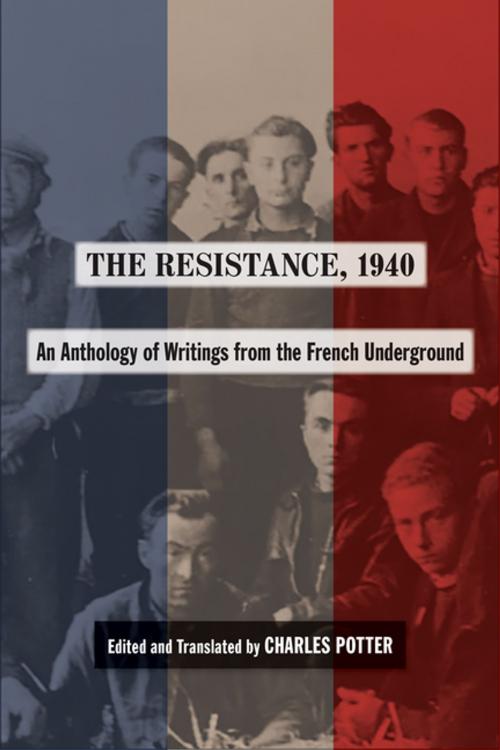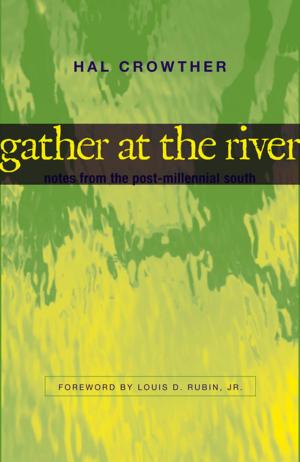The Resistance, 1940
An Anthology of Writings from the French Underground
Nonfiction, History, Western Europe| Author: | ISBN: | 9780807163948 | |
| Publisher: | LSU Press | Publication: | December 12, 2016 |
| Imprint: | LSU Press | Language: | English |
| Author: | |
| ISBN: | 9780807163948 |
| Publisher: | LSU Press |
| Publication: | December 12, 2016 |
| Imprint: | LSU Press |
| Language: | English |
The Resistance, 1940 illuminates the early phase of the French Resistance through first-hand accounts, describing how movements organized themselves in opposition to both German occupation and the collaborationist Vichy government. Translated and annotated by Charles Potter, these writings, composed by French men and women, reveal how the Resistance fighters experienced defeat and resurrection in the pivotal year of 1940.
This primary source reader opens with “First Fight,” by Jean Moulin, which offers a vivid eyewitness recounting of the collapse of France, penned by arguably the greatest hero of the Resistance. This major historical document is supplemented by three additional accounts of subsequent events. “First Resistance,” by Germaine Tillion, who was arrested in 1942 and sent to Ravensbrück concentration camp for the duration of the war, depicts the formation of the Groupe du Musée de l’Homme. “National Liberation,” by Henri Frenay, who originally supported the Vichy government but quickly became disillusioned, offers details on the planning of the vast resistance network later known as Combat. Finally, “We Were Terrorists,” by Jean Garcin, excerpts the memoir of a young Socialist in the southern zone who later headed resistance efforts in the city of Marseilles.
Along with these annotated texts, Potter includes an informative introduction and contextualizes each source, positioning the documents within the timeline of events. Taken together, these four seminal accounts from four individual perspectives offer compelling evidence about how and when the French Resistance began.
The Resistance, 1940 illuminates the early phase of the French Resistance through first-hand accounts, describing how movements organized themselves in opposition to both German occupation and the collaborationist Vichy government. Translated and annotated by Charles Potter, these writings, composed by French men and women, reveal how the Resistance fighters experienced defeat and resurrection in the pivotal year of 1940.
This primary source reader opens with “First Fight,” by Jean Moulin, which offers a vivid eyewitness recounting of the collapse of France, penned by arguably the greatest hero of the Resistance. This major historical document is supplemented by three additional accounts of subsequent events. “First Resistance,” by Germaine Tillion, who was arrested in 1942 and sent to Ravensbrück concentration camp for the duration of the war, depicts the formation of the Groupe du Musée de l’Homme. “National Liberation,” by Henri Frenay, who originally supported the Vichy government but quickly became disillusioned, offers details on the planning of the vast resistance network later known as Combat. Finally, “We Were Terrorists,” by Jean Garcin, excerpts the memoir of a young Socialist in the southern zone who later headed resistance efforts in the city of Marseilles.
Along with these annotated texts, Potter includes an informative introduction and contextualizes each source, positioning the documents within the timeline of events. Taken together, these four seminal accounts from four individual perspectives offer compelling evidence about how and when the French Resistance began.















